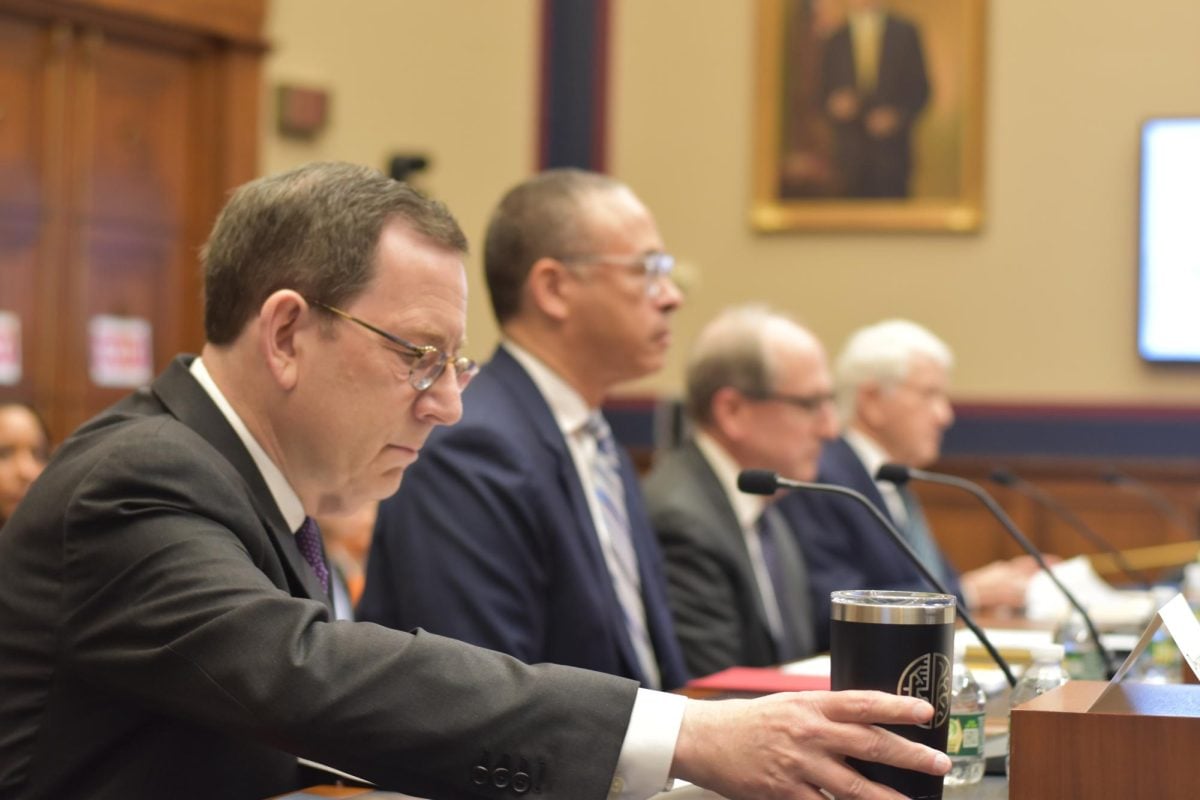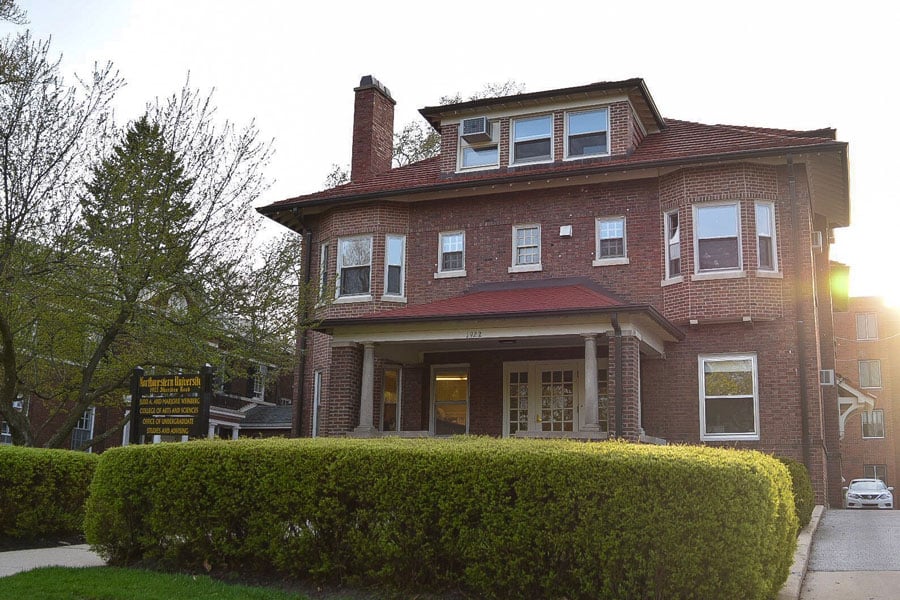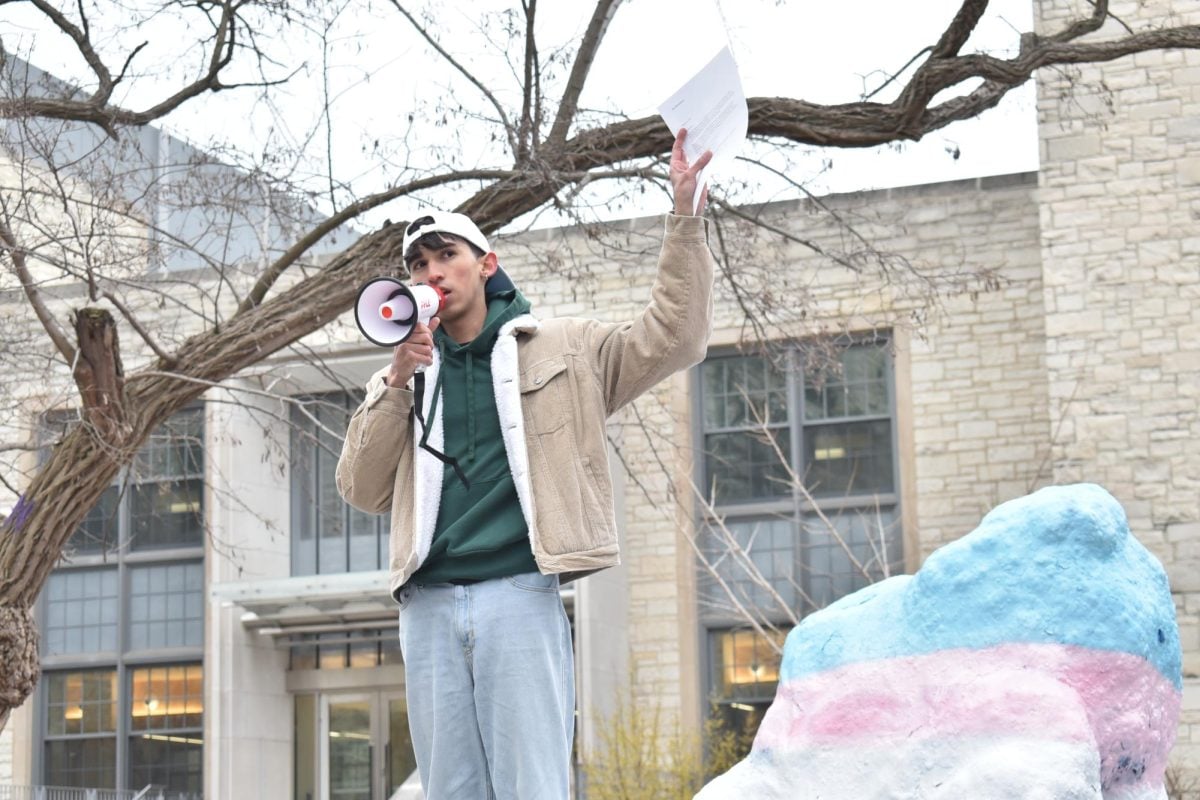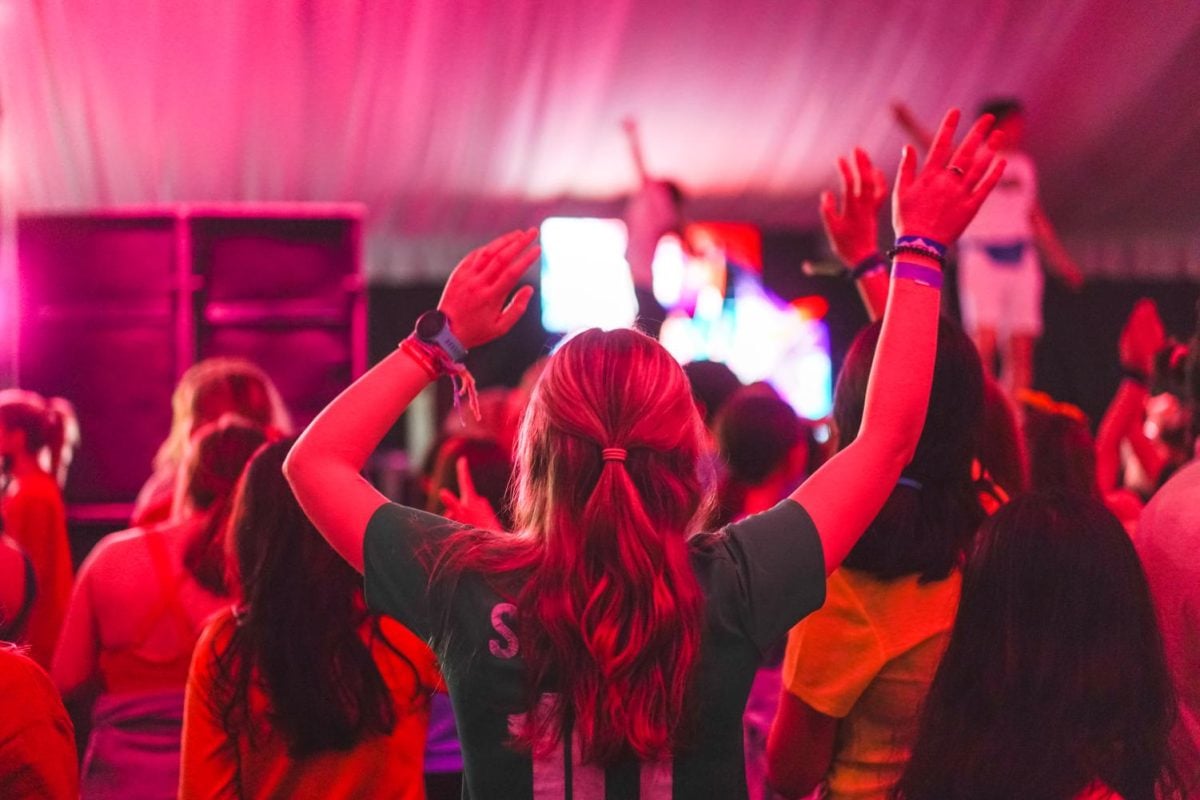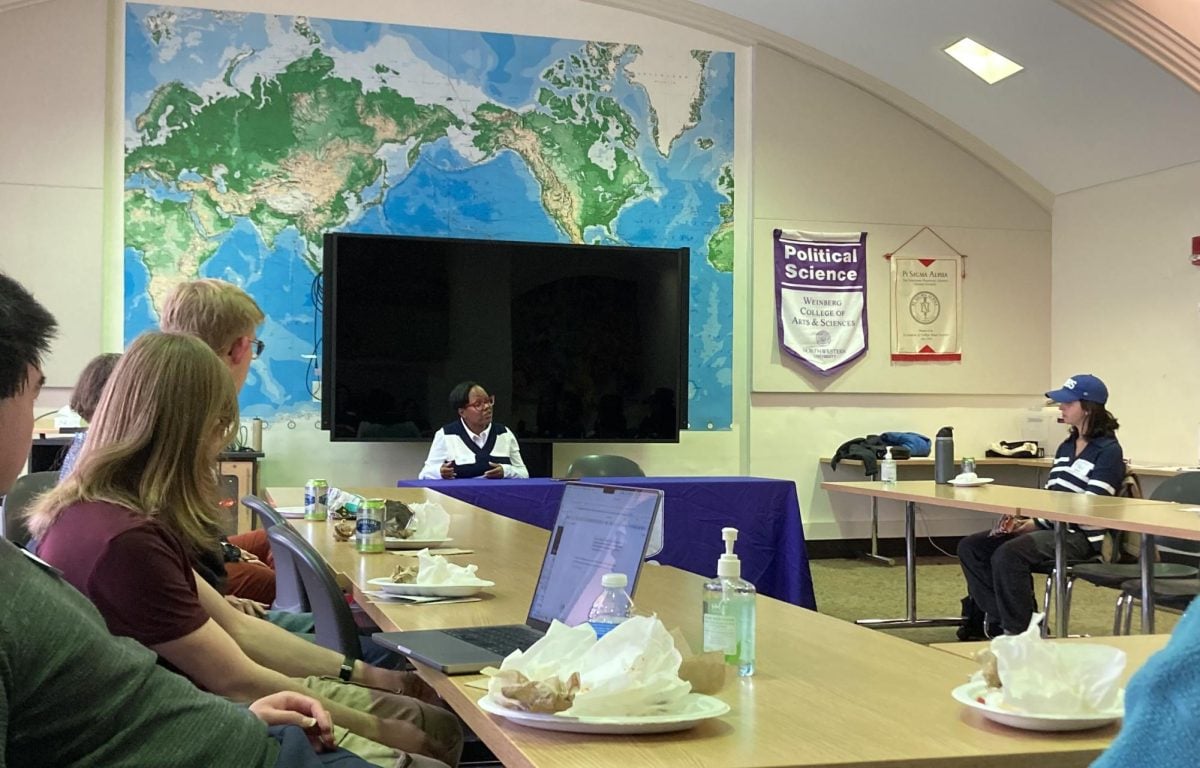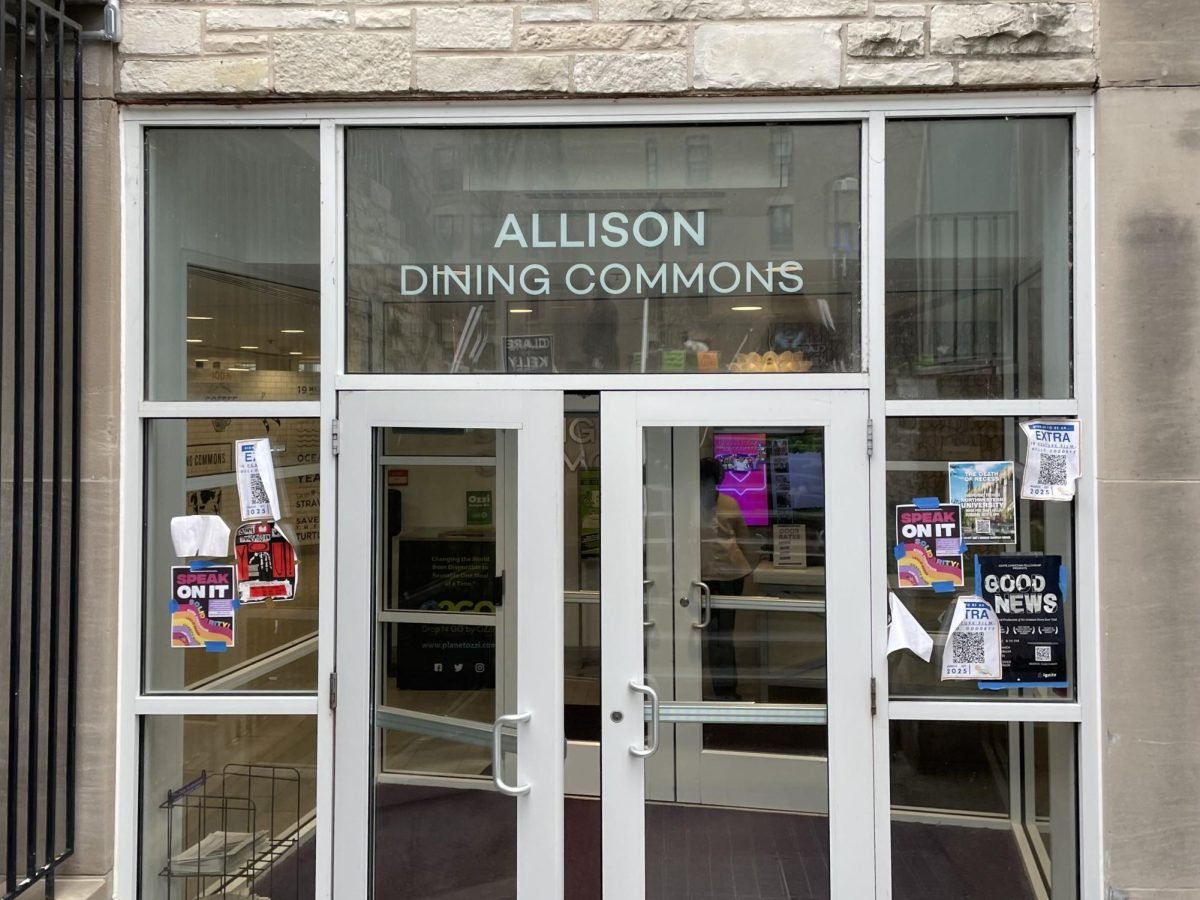Facing tough questions from lawmakers about his response to pro-Palestinian activism, University President Michael Schill attempted to perform a balancing act during his Thursday morning testimony before the House Committee on Education and the Workforce on Capitol Hill.
Schill doubled down on his commitment to fighting antisemitism on campus while also defending his decision to peacefully deescalate the pro-Palestinian activism on Deering Meadow.
Two weeks after declaring in a Chicago Tribune op-ed that “University presidents are between a rock and a hard place when it comes to the wave of protests and tent encampments on our campuses,” Schill is encountering growing dissatisfaction from dueling camps who see his rhetoric and behavior as overly acquiescent in the face of increasing pressure.
In his testimony, Schill committed to reconstituting a task force, initiating a review of NU’s Code of Conduct, increasing campus security and educating students about antisemitism. He also defended his decision to reach an agreement with pro-Palestinian student activists that resulted in the removal of all tents but one from Deering Meadow.
“We got rid of the major antisemitic event on our campus with no violence,” Schill said.
The House Committee on Education and the Workforce has called several university leaders to testify about their responses to on-campus antisemitism since the militant group Hamas’ Oct. 7 attack on Israel, which killed about 1,200 people, according to Israeli officials. As Israel’s subsequent offensive in the Gaza Strip has killed more than 35,000 people, according to Palestinian officials, student activists have set up encampments on dozens of college campuses across the country, challenging administrators to balance safety with free expression.
While Schill and the leaders of University of California, Los Angeles and Rutgers sparred with lawmakers 600 miles from campus, a few dozen students gathered on Deering Meadow under the remaining tent — permitted by the agreement — to watch Schill’s testimony live Thursday morning. Attendees included members of the Northwestern Divestment Coalition, which is made up of pro-Palestinian activists, many of whom are also affiliated with NU’s chapters of Students for Justice in Palestine, Educators for Justice in Palestine and Jewish Voice for Peace.
Weinberg junior and NU JVP member Dan Murrieta watched a portion of the hearing from Deering Meadow. He also helped lead a student-organized press conference in front of a few local news outlets.
Murrieta said the hearing was a distraction from the “ongoing genocide” in Gaza. They added that Schill mischaracterized the agreement reached when he said the University “agreed to none of the demands that were presented to us.”
“The reaction right now is, ‘How do we correct the narrative of things that were said at the hearing that are not true?’” Murrieta said. “We’re still engaged in activism, and we’re still engaged in this fight.”
He added that while Schill and the representatives questioning him referred to the five-day encampment on NU’s campus as “antisemitic,” as a Jewish student, he doesn’t feel this is an accurate characterization.
Murrieta said participating in the encampment was “empowering” for them as a Jew, adding that demonstrators held Jewish religious services on the Meadow.
Some community members have condemned at least two posters on the Meadow during the encampment featuring antisemitic tropes — including one depicting Schill with devil horns and another showing a Star of David with a red slash through it — but Murrieta said these concerns are misplaced.
“Members of the Evanston and Chicago communities were friendly… and (came) with care and solidarity,” he said. “The time I felt the most in danger and the most worried was when there were counterprotesters coming in.”
On April 28, the fourth day of the encampment, pro-Israel counterprotesters stood off with encampment demonstrators for over an hour, prompting increased University Police presence in an attempt to prevent a physical confrontation.
Some community members, however, remain unsatisfied with the campus climate and with the University’s efforts to curb antisemitism.
Wendy Khabie, a national co-chair of the Coalition Against Antisemitism at Northwestern, said members of CAAN are “horrified” at Schill’s insistence that he is doing everything he can to prevent antisemitism on campus.
“You have my commitment that we will do what is necessary to combat antisemitism,” Schill told the committee. “We will also do what is necessary to educate our students in the evils of antisemitism, as well as the roots of antisemitism.”
Khabie added that members of CAAN are dissatisfied with Schill’s choice to negotiate with student demonstrators despite their actions — including the erection of tents — violating a change Schill made to NU’s student demonstration policy the same morning tents went up.
“President Schill, while demonstrating his position that he should be praised for ending the encampment, completely ignores the fact that the perpetrators with whom he was negotiating should be held accountable for violating codes he established the same day tents went up,” Khabie said. “It’s astonishing that he does not see this as a capitulation.”
Outside interest groups including conservative news watchdog Accuracy in Media and pro-Israel group StandWithUs have called for Schill’s resignation in the wake of the agreement — with Jewish nonprofit advocacy group Alums for Campus Fairness joining the growing list following Schill’s testimony. Still, there have been no public indications that he will take such an action.
The Anti-Defamation League Midwest also reiterated its call for Schill’s resignation Thursday, and Reps. Elise Stefanik (R-N.Y.) and Carlos Gimenez (R-Fla.) newly called on him to step down.
Rep. Virginia Foxx (R-N.C.), the committee’s chair, declined to comment on whether or not she intends to call for Schill’s resignation.
As concerns about antisemitism on campus continue to rise, the Muslim-cultural Students Association released a statement Thursday evening via Instagram condemning recent acts of Islamophobia.
“McSA firmly stands against all forms of discrimination and violence directed at Muslim and Arab students,” the post reads. “We are deeply troubled by the University’s inaction and the aggressive double standard in addressing such incidents.”
SESP junior Eman Hamed, former co-president of the MENA Students Association at NU, was present at the encampment Thursday morning to watch the live stream of Schill’s testimony. While she was disappointed with Schill’s rhetoric, she said he is simply a product of his environment — which is “filled anti-Palestinian incentives, from NU’s Board of Trustees to the halls of Congress.”
Despite many of the student viewers on Deering Meadow feeling “shocked” at portions of Schill’s testimony — including when he said he never considered divesting from Israel — Hamed said the event provided community bonding overall.
Hearing Schill tell members of Congress about the inner workings of his strategy in negotiations with encampment organizers, Hamed said she feels “a little bit deceived,” adding that his testimony makes her question whether he engaged in a good faith negotiation.
“The way like he talks about brokering a deal with us was kind of a mechanism,” Hamed said. “(Like it was) just to get us to shut up… It was to shut the encampment down, to remove the tents, to get us to be quiet. But to us it means so much more, and I think it symbolizes the collective endeavor that is fighting for liberation of Palestine.”
In a statement to the NU community Thursday evening, Schill reiterated the commitments made in his opening statement to Congress.
“The work we have underway — to revise our Student Code of Conduct, a review of our on-campus security capabilities, and a new task force addressing antisemitism — will be a part of the solution,” Schill wrote. “But I also discussed today the most important step that we can take together to strengthen our community — education and dialogue.”
During the hearing, Stefanik criticized Schill’s decision not to consult the President’s Advisory Committee on Preventing Antisemitism and Hate on the agreement, prompting seven members of the committee — including NU Hillel Executive Director Michael Simon — to step down.
Stefanik also alleged that Schill did not consult with Simon before reaching the agreement, a claim that Schill rejected.
According to Simon, even though Schill did not formally consult the committee, he did “check in” with him about the stipulation in the agreement that the University would “engage students in a process dedicated to ensuring additional support for Jewish and Muslim students within Student Affairs/Religious & Spiritual Life.”
Both individuals also denied Stefanik’s allegation that Schill had asked Simon whether it would be possible to hire “anti-Zionist head of Hillel, rabbi.”
While Simon said his focus is on promoting a safe and welcoming environment for students on campus rather than on Congressional proceedings, he told The Daily he welcomed the efforts of both University administrators and lawmakers to address antisemitism on college campuses.
“To the extent that Schill and the administration and the leadership of the University are committed to an environment where there are clear policies and enforcement of policies and the aspiration is that we all live in an environment that is safe from intimidation and threats … that’s what I’m focusing on,” Simon said. “That’s what I hope to see, and — to the extent that the committee shone light on the challenges and issues we have here — I think that can be constructive if it leads to real change.”
Medill junior Max Sullivan, a media liaison for the NU Divestment Coalition, who uses ze/hir pronouns, said ze watched a portion of Schill’s testimony from Deering Meadow.
Sullivan said the House Committee for Education and the Workforce’s premise for questioning Schill and other University presidents — addressing antisemitism — was not the true purpose of the hearing.
“It was pretty clear… that the concern is not antisemitism, but student protest,” Sullivan said.
In the hearing, Schill emphasized that he gave up very little in negotiations with student protesters, but Sullivan said ze felt this is also false. The University committed to partial disclosure of its investments and the creation of a MENA space on campus, among other concessions.
“Both of those things are tools in the ongoing toolkit of organizers on this campus… that were practically inconceivable six months ago,” Sullivan said. “They have not been on the table for the University to consider, except under the duress that the encampment produced.”
Schill also faced pressure from lawmakers to take disciplinary action against faculty who have engaged in alleged antisemitism, but Schill repeatedly declined to comment on the status of individual faculty members.
Rep. Jim Banks (R-Ind.) called Medill Prof. Steven Thrasher — who was involved in a confrontation with University Police on the first day of the encampment — a “professional prognosticator,” asking Schill whether it was acceptable for faculty members to “scuffle with police officers.” In response to a request for comment, Thrasher referred The Daily to a message he circulated via University of Alabama Prof. A.J. Bauer’s X account.
“I feel strongly as a faculty member that our first responsibility is to make sure that our students are safe from danger — to ensure their physical safety,” Thrasher said in the statement.
Political science Prof. Alvin Tillery said he was reassured by Schill’s commitment to defending the rights of faculty to due process and refusing to comment on their speech.
“I thought President Schill’s unwillingness to engage in that kind of discourse was really a good thing,” Tillery said. “I also thought his defense of free speech rights on campus was a good thing. The defense of the agreement and of the ability of people to engage in speech that he personally finds objectionable — that was a win for the institution in my view.”
He called Republicans’ efforts to paint some students and faculty as pro-Hamas “not only reckless but dangerous,” noting that it was “almost as if they’ve been handed the script by our board or an alumni group to embarrass him.”
Tillery said while Schill has lost the support of some faculty and trustees for not abiding by “absolutist norms of free speech,” he hopes the community will show gratitude to Schill for valuing the physical safety of students.
“I’m sure President Schill is still under pressure from members of our board and outside groups to resign,” he said. “I don’t expect that to stop, but I don’t know how anyone can expect a college president who’s supposed to be acting in loco parentis to think they’ve done anyone wrong when none of our students got hurt.”
Samanta Habashy contributed reporting.
Email: samanthapowers2026@u.northwestern.edu
X: @SQPowers04
Email: jacobwendler2025@u.northwestern.edu
Related Stories:
— Northwestern President Michael Schill addresses House testimony
— Northwestern President Michael Schill testifies before Congress
— Schill addresses antisemitism in opening statement before House
